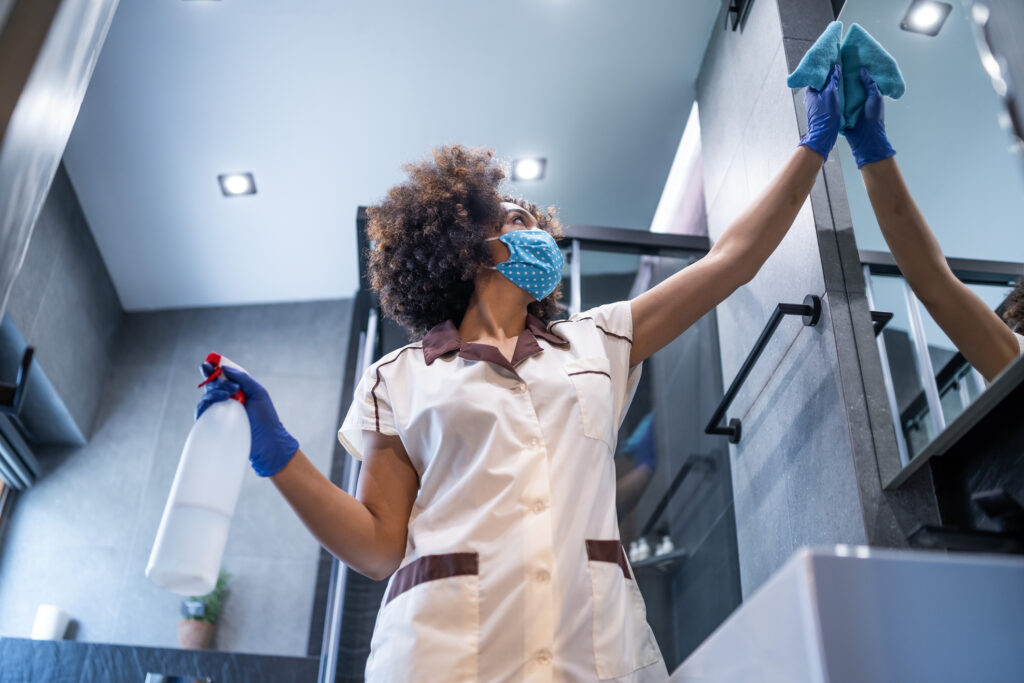The Importance of Infection Prevention in the Hospitality Sector
Many studies have shown the physiological and psychological benefits of taking regular vacations. Demonstrating that time away from the daily grind can significantly reduce stress and potentially prevent the onset of chronic diseases. As the bustling heart of the tourism and travel industry, the hospitality sector provides essential services to millions of people worldwide every day. Whilst we relax, unwind and take a well-earned break, the management team, health and safety officer, housekeeping and catering staff are behind the scenes ensuring that infection prevention procedures are meticulously followed so that your holiday goes as smoothly as planned.
However, despite best efforts to maintain high standards, an unseen threat must be continually contended with – Pathogens! Pathogens are microscopic organisms that include viruses, bacteria, fungi and parasites that cause illness and disease in humans, plants and animals. These infectious agents cause a wide range of illnesses, from the common cold to life-threatening diseases.
The first and foremost reason for effective infection prevention programs in hospitality is to safeguard guests’ health. Hotels are expected to provide comfort and a secure environment for their guests. In the wake of the pandemic, guests are more concerned about hygiene and sanitation than ever. They expect and trust that hotels will take all necessary precautions to ensure their safety. Keeping a clean, infection-free environment enhances guests’ overall experience, increases their trust, and ensures their return.
Infection prevention doesn’t just benefit the guests. Employees in the hospitality sector are on the front line, interacting with hundreds of people every day. Protecting their health is not only a moral duty but also impacts business. Healthy employees are more productive, happier and are more likely to provide high-quality service to guests.



Depending on the jurisdiction, hospitality establishments may be legally required to adhere to certain health and safety standards, including infection prevention. Failure to comply with these regulations can result in severe penalties. A disease outbreak can severely disrupt business operations, leading to significant financial loss. Moreover, the reputational damage that follows an outbreak can be even more harmful in the long term.
On the other hand, a reputation for stringent hygiene and health practices can set a business apart, attracting more guests and boosting the bottom line.
The role of each dept within the hospitality environment is crucial.
Management Team: The hotel’s management team is primarily responsible for establishing, implementing, and maintaining infection prevention policies. This includes arranging staff training, ensuring adherence to local health and safety regulations, and overseeing the hotel’s cleanliness and sanitation procedures.
Human Resources: The HR department is responsible for ensuring that all staff are adequately trained in infection prevention procedures and that these procedures are enforced.
Health and Safety Officer: Some larger hospitality sectors may have a dedicated Health and Safety Officer or a similar role. This individual would coordinate and oversee the hotel’s health and safety procedures, including infection control. They would also be responsible for keeping up to date with the latest guidelines and regulations.
Housekeeping Staff: Housekeeping staff play a critical role in maintaining the cleanliness of the hotel. They are responsible for cleaning guest rooms, public areas, restrooms, and other shared spaces. Their duties often include disinfecting high-touch surfaces, changing linens, and managing waste properly. Housekeeping and food and beverage staff are pivotal in the fight against infection.
Food and Beverage Staff: Infection prevention is important in areas where food and drink are prepared and served. These staff members must follow strict hygiene practices to prevent foodborne illnesses, including proper handwashing, safe food handling, and regular cleaning and sanitizing of kitchen and dining areas.
Front Office Staff: The front office staff are often the first point of contact for guests and play a crucial role in infection control. They can encourage guests to adhere to the hotel’s health and safety measures, provide information on its infection prevention policies, and report any health and safety concerns to management.
Guests: Guests also play a role in preventing infection by following the hotel’s guidelines, practising good personal hygiene, and reporting any concerns to the hotel staff.
Infection prevention in any environment is collaborative, with everyone involved in maintaining a clean and safe environment. It’s about creating a culture of health and safety where everyone understands their responsibilities and takes them seriously.
Kersia Healthcare is here to help educate your team on the importance of effective infection prevention and control.
Our EPA-approved, NaDCC disinfection tablets can:



If you want to read a peer-reviewed publication on how our NaDCC chemistry impacted biofilm growth, click here.
If you would like to find out more about our products, please contact:
Dan Mueller,
Senior Vice President, N. American Sales
M/ 206 741 5981
Or click here to e-mail our team!


